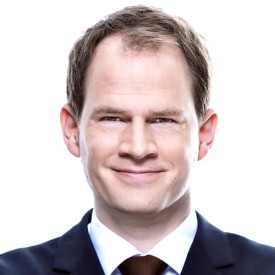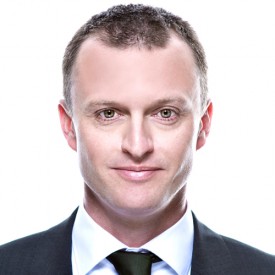Copyright Law
Copyright law is based on the German Copyright Act (UrhG). This act protects works such as images, texts, music, films, computer programs, fine art works, applied art works, as well as presentations of a scientific or technical nature. It automatically provides the originator with a whole range of rights, some of which are nonmarketable. The originator can thus determine the entire economic use of his/her work, including duplication, distribution, and publication, and also transfer all or part of his/her usage rights to a third party.

Practically all traditional and new media generate income from the use of copyright-protected content. Thus, copyright law forms the economic basis of the entire media and entertainment industry. The text and images in newspapers, magazines, books, and also the content of film, TV, and radio represent copyright-protected works and services or are based on such. In the advertising industry, the services of designers, such as product designers, web designers, developers of logos, graphics, and visualizations can possibly be protected in accordance with the German Copyright Act (Urheberschutzgesetz, UrhG). The copyrights to computer games and other software are also becoming increasingly more economically important in this industry. The copyright law is relevant as well for practically all areas of the Internet. For certain social networks such as Youtube, Instagram, etc., or retail platforms such as iTunes and musicload, it even forms the fundamental basis.
In all these cases, it is imperative that users obtain all of the necessary rights from the originator. Therefore, a legally sound contractual agreement regarding the required usage rights forms the indispensable basis in all of these areas.
If works or services protected by the German Copyright Act are used by an unauthorized party, German and international copyright law offers many options for requiring the violator to cease and desist from the unauthorized use and to eliminate the violation as well as to seek disclosure and compensation for such unauthorized use.
In particular, the amount of compensation is the starting point of many disputes. Creative artists can, just as in general law on compensation, then demand payment of compensation by the violator for damages explicitly suffered. As such damage is often difficult to determine, since, for example, a photographer does not know and/or cannot prove that he/she lost a contract with a specific order volume due to the violation, the originator has two other options for calculating damages. In addition to asserting the specific damage, artists have the right to choose whether to demand the profit made from the use of their work from the violator or to demand an appropriate license fee, which can be determined on the basis of the rates commonly used in the market.
Furthermore, the originator, e.g. the photographer, artist, graphic designer, or musician, has an nonmarketable moral right to his/her work, which is normally likewise violated when there are copyright infringements. In addition to the right of the originator to decide the type and manner of publishing of his/her work, this moral right contains two main rights. On the one hand, originators have a naming right, which entitles them to provide the work with a copyright designation, e.g. their legal name or a pseudonym. On the other hand, originators may defend themselves against the defacement of their work.
Publishing law
Publishing law comprises the statutory provisions of the German Publishing Act (VerlG) and the usage right of the publisher to duplicate and distribute a work of musical art or literature derived from the German Copyright Act (UrhG). In addition, the provisions of the German Fixed Book Pricing Act (BuchPrG) and the Competition Law (Wettbewerbsrecht) play a primary role in publishing law.

Publishing law controls the legal relationship between creative minds – e.g. authors, translators, illustrators, songwriters – and publishers. In this process, the author of the work undertakes to assign the work to the publisher for duplication and distribution purposes by means of a publishing contract. In return, the publisher undertakes to produce and distribute a certain volume of the work at its own costs and in accordance with the agreement.
We accompany our clients through their entire creative process and protect their rights through the agreement, design, and negotiation of publishing and art publishing, illustrator, multi-author, ghostwriter, order, translator , and screen adaptation agreements. The review and registration of planned titles of the work to be published through title protection notices and the initiation of notarial safekeeping of your manuscripts and other yet unpublished works are also part of the services provided by our office.
When reviewing a standard publishing contract, the regulations regarding the general terms and conditions of business must always be taken into consideration. The publishing contract must not inappropriately disadvantage the author, for instance, the provisions must be transparent and easy to understand for the author of the work, and the contract must not contain any surprising clauses. For example, fixed non-competition clauses in publishing contracts are only permissible if they carry a time limit.
The system of press distribution with the particulars of the press wholesalers, national distribution, and railway station bookshops, as well as the provisions regarding fixed book pricing (BuchPrG), create a particular challenge in terms of publishing law resulting, in particular, in numerous competition-related issues. The multitude of decisions, the frequently shifting places of jurisdiction, a certain trend toward case law, the often different case law in the various court districts, and the sometimes complicated legal issues encountered during proceedings make the publishing competition law highly complex.
In addition, the legal relationships with respect to the collecting societies such as GEMA [German Society for Musical Performance and Mechanical Reproduction], VG Wort [German collection society for written works], and VG Bild and Kunst [German collection society for images and art] must be taken into consideration and included in the overall consultation.
Our expertise in Copyright Law and Publishing Law
Our office focuses, in particular, on German and international copyright law and all of its aspects. We represent creative minds and users of copyright-protected works from all areas of literature, science, and art. We support our clients in every phase of the creative process, from protecting the idea by establishing confidentiality agreements and providing safe storage of protected works to complex production, distribution, and licensing agreements.
We advise and represent publishers, authors, musicians, producers, and music associations throughout Germany in all questions regarding (music) publishing law and publishing-related competition law.
Years of practical experience and our specialized copyright lawyers provide our firm with the competence to defend unauthorized claims from third parties or to legally enforce your rights by defending claims or issuing official warnings and guiding you through legal proceedings such as preliminary injunctions and principal proceedings.




